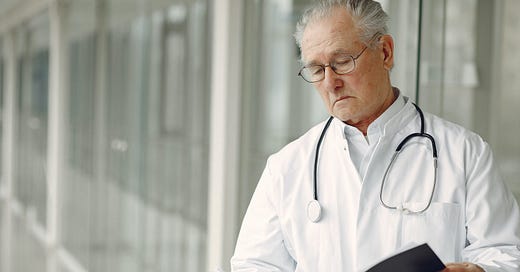Donor sperm and adverse health in adulthood?
A new study suggests adult health outcomes may be different in people conceived with donor sperm.

One of our duties to people born through reproductive technologies is to study whether there are any adverse effects from these techniques. There is a fair bit of evidence that reproductive technologies are associated with some less-than-ideal birth outcomes. Babies are more likely to be born early, have lower birth weights, and be small for gestational age, for instance, and some technologies have been linked to higher rates of congenital abnormalities.
There is an entire area of study, dubbed "DOHaD" for "developmental origins of adult disease," which works to untangle how our pre-lives can affect our adult health. By pre-life, I mean things like maternal nutrition during our gestation, maternal nutrition before we were conceived, even grandmaternal nutrition before our mothers were conceived, as well as certain other factors and stressors experienced either in the womb or by our forebears. The most famous piece of DOHaD research is the finding from a study of the Dutch famine of 1944-45: in a nutshell, babies born to mothers who were starving during their pregnancies often went on to be adults plagued by heart disease, type 2 diabetes and obesity. All that to say, early factors can have far-reaching and surprising effects.
What about the pre-life experiences inherent in reproductive technologies? What of the freezing of gametes or the use of stimulating hormones to hyper-produce them? What of the culture medium in the IVF dish or the cryoprotectant used to freeze the egg? In many cases, it's too soon to really know.
Donor sperm is one of the oldest fertility interventions, and even there, not all that much is known about offspring health in adulthood. At least one study indicates that newborns tend to have lower birth weights and more birth defects. From a DOHaD point of view, that suggests the adult health of donor sperm-conceived people might be something worth examining.
Damian Adams, a researcher at Flinders University, in Bedford Park, South Australia (and a donor sperm-conceived person himself) and his colleagues, have now begun inquiring. The first results have just been published in the Journal of Developmental Origins of Health and Disease.
The research team surveyed 272 adults conceived using donor sperm and 877 spontaneously conceived people. The two groups were matched for age, sex, height, smoking, alcohol use, exercise, own fertility and maternal smoking. All were surveyed about a wide variety of health outcomes in adulthood, ranging from cardiovascular to neurological to oncological, and asked to only identify health issues that had been formally diagnosed by a medical professional.
In almost all ways, the two groups were similar in terms of health. That's good news, and to be expected. But in at least a few instances, there were statistically significant differences: people conceived via donor sperm were more likely to report type 1 diabetes, for instance, as well as thyroid disease, acute bronchitis, allergies, sleep apnea and having had ear tubes surgically implanted.
It is hard to know exactly why these differences would exist. The authors note that donor sperm adults were more likely to have been born as twins and their mothers were more likely to have had complications during pregnancy. They also note that mothers who use donor sperm are known to be more likely to experience preeclampsia, a pregnancy complication that involves high blood pressure and sometimes organ damage. They also point out that, these days at least, donor sperm is handled and cryopreserved, which can cause DNA fragmentation; animal studies suggest this could be important.
This particular study isn't able to tease out causes. But it does raise questions. And with tens of thousands of donor sperm-conceived individuals born each year, it's important that we start getting some answers.
*
Damian Adams et al. "Self-reported physical health status of donor sperm-conceived adults." Journal of Developmental Origins of Health and Disease. 2020.
*
Contact me at alison.motluk@gmail.com
Follow me @AlisonMotluk and @HeyReprotech
Check out the HeyReprotech archive


